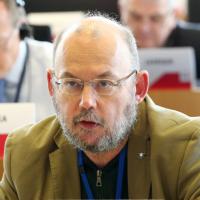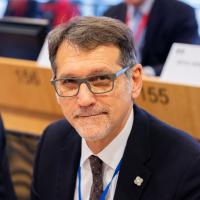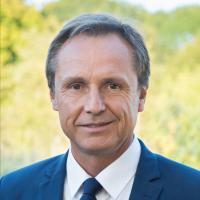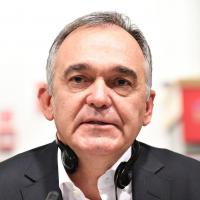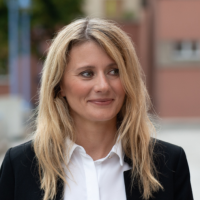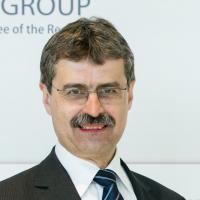A European Deal for Housing
A European Deal for Housing
Housing is a precondition for achieving personal wellbeing, for social participation, for integrating into society and for contributing to a fair and inclusive society. It is a major element in our fight for a more social Europe: leaving no one behind also means leaving no one without a decent and affordable home! At the same time, it will be a key component of a truly European Green Deal through the upcoming Renovation Wave Strategy, which aims at scaling up the energy renovation of the building stock and at tackling energy poverty.
Local and regional politicians have experience in the provision of housing on a daily basis. They are also familiar with the difficulties coming from the lack of financing to actually build new dwellings or from conflicting EU legislations in policy areas linked to housing. These create obstacles for established schemes at local and regional level to support affordable and sustainable housing.
To tackle these challenges, progressive cities and regions have taken innovative actions and can inspire us with their initiatives. At the same time, through various initiatives, cities are partnering up. They are asking for Europe’s help in tackling the social, economic and sustainability aspects of the housing crisis, all of which have been exacerbated even more by the coronavirus pandemia.
As part of the European Week of Regions and Cities 2020, the PES Group workshop on A European Deal for Housing aimed to identify the obstacles met by local and regional politicians to finance affordable and sustainable housing through European funds (the cohesion funds, the recovery plan or InvestEU in particular) to identify progressive solutions and best practices, and to list core policy demands to European policy-makers that could feed into the European Parliament's report “Access to decent and affordable housing for all”.
A strong future cohesion policy and a European Deal for Housing need to go hand in hand!
Summary
The workshop was structured around two panels. It was moderated by Maria Freitas, Senior Policy Advisor for the Foundation for European Progressive Studies (FEPS).
This first panel brought together progressive politicians from different European cities presenting initiatives in their cities (also backed by EU funds) in order to tackle housing challenges like the structural shortage of affordable, public and social housing and the lack of public investments.
Alison Gilliland, Member of the Dublin City Council (Ireland) and PES Group member. She explained that the multiple challenges she is facing in Dublin is trying to have a more inclusive approach for housing, avoiding hence segregation so as to also meet the needs of those who fall outside the current eligibility criteria for housing aid.
Virginio Merola, Mayor of Bologna (Italy) and PES Group member. He mentioned inter alia how they are focussing on rent in Bologna, a problem that was already present but that has been worsened by the pandemic. A fund for supporting rent payments has been set up and focus is also being put on social mobility, sustainability and intergenerational cohousing living.
Peter Florianschütz, Member of the Vienna City Council (Austria), rapporteur of the European Committee of the Regions on “A European framework for regulatory responses to the collaborative economy”, and PES Group member. He detailed what Red Vienna stood for in a city where over 60 percent of citizens live in subsidised housing and how it is not seen as housing but rather as a basic right.
Jutta Steinruck, Lord mayor of Ludwigshafen (Germany). She explained that creating affordable housing was one of her main political priorities when she took office, more specifically providing enough housing at all different price levels and dealing with the problem of lack of space.
The second panel focused on what is demanded at European level in terms of housing, bringing together progressive politicians, experts and people who are in contact with the housing sector directly on the ground.
Assoc. Prof. Dr. Milan Ftáčnik, co-author of the FEPS study on “Concrete actions for Social and Affordable Housing in the EU”. He informed participants about the study that presents best practises coming from six countries and makes recommendations at three levels: local, national and European, due to the important (and interlinked) role they all play in the process of creating better housing.
Estrella Durá Ferrandis, Member of the European Parliament (S&D/Spain) and shadow-rapporteur on “Access to decent and affordable housing for all”. She presented the main points of the EP draft report, focusing on the idea that we need at European level an integrated strategy for social public housing that is affordable and not segregated.
Michaela Kauer, Coordinator of the EU Urban Agenda Housing Partnership and Head of Brussels Office of the City of Vienna (Austria). She pointed to the rising regional disparities that need to be urgently addressed and to the 'woman's face' of the housing crisis.
Enrico Rossi, former President of Tuscany region (Italy) and rapporteur of the European Committee of the Regions on the “Renovation Wave”. He underlined how tackling the housing crisis is intrinsically linked with tackling the climate crisis and explained how the renovation wave can help us to 'build back better' and thereby make our cities more sustainable and inclusive.
Karin Zauner-Lohmeyer, affordable housing activist, "Housing for All". She summarized her contribution to the discussions into three fundamentals she identifies to reach a new deal for housing in Europe: listen to the people, have courage and endurance in your political commitment and go back to the roots as this sector is the result of a long a social democratic tradition.
Concluding the event, Christophe Rouillon, President of the PES Group in the CoR and Mayor of Coulaines (France), recalled that a political approach in the social housing sector is needed by taking it into account in the framework of the European Semester. Energy sustainability is also primordial and social ghettos must be eradicated. Progressive cities and regions will continue their fight for decent, affordable and sustainable housing for all and make sure that no one is left behind.
***
Photo credits: Unsplash/Adrian Trinkaus
Speakers
Interactive panel debate 1: Housing practices from progressive cities: challenges and innovative solutions
Panel moderated by Maria Freitas, Policy Advisor, Foundation for European Progressive Studies
Peter Florianschütz, Member of the Vienna City Council (Austria) and PES Group member
Alison Gilliland, Member of the Dublin City Council (Ireland) and PES Group member
Virginio Merola, Mayor of Bologna (Italy) and PES Group member
Jutta Steinruck, Lord mayor of Ludwigshafen (Germany)
Interactive panel debate 2: Housing in Europe: where we stand and what we demand
Panel moderated by Maria Freitas, Policy Advisor, Foundation for European Progressive Studies
Estrella Durá Ferrandis, Member of the European Parliament (S&D/Spain) and shadow-rapporteur on “Access to decent and affordable housing for all”
Assoc. Prof. Dr. Milan Ftáčnik, co-author of the FEPS study on “Concrete actions for Social and Affordable Housing in the EU”
Michaela Kauer, Coordinator of the EU Urban Agenda Housing Partnership and Head of Brussels Office of the City of Vienna (Austria)
Enrico Rossi, Former President of Tuscany region (Italy) and rapporteur of the European Committee of the Regions on the “Renovation Wave”
Karin Zauner-Lohmeyer, affordable housing activist, "Housing for All"
Conclusions
Christophe Rouillon, President of the PES Group and Mayor of Coulaines (France)
Further reading
Video streaming
Photo gallery


